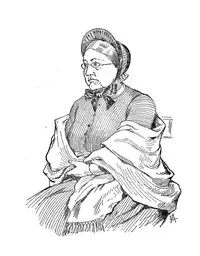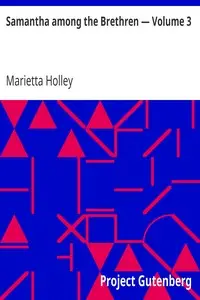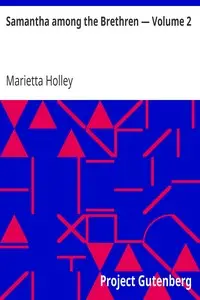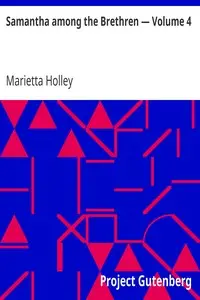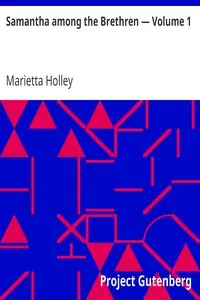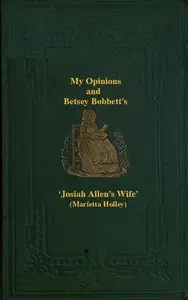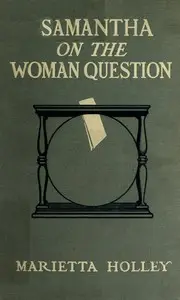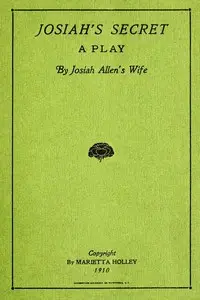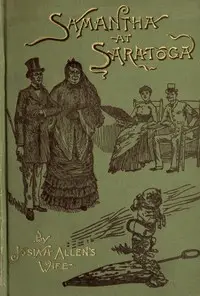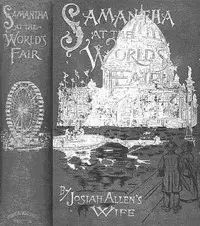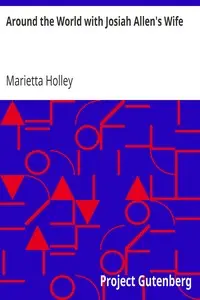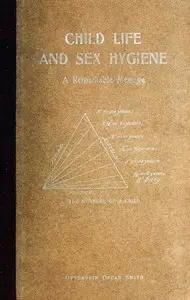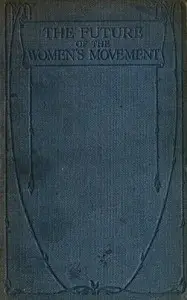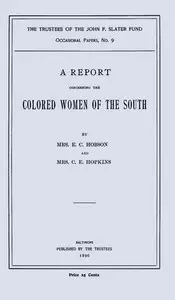: "Samantha among the Brethren — Volume 5" by Marietta Holley is a funny story that makes you think about what it was like to be a woman in the olden days, especially in the church. The main character, Samantha, deals with not being seen as equal to men in her church and wants to help save their meeting house. She talks with her husband, Josiah, and other women about how the church lets women do lots of work but doesn't give them any real power. Through Samantha's funny and smart words, the book points out how unfair things were for women and celebrates how strong and determined they could be.
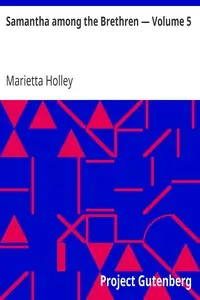
Samantha among the Brethren — Volume 5
By Marietta Holley
: In a world where women are expected to be quiet, one woman finds her voice to challenge the rules of the church and fights for her place.
Summary
About the AuthorMarietta Holley, was an American humorist who used satire to comment on U.S. society and politics. Holley enjoyed a prolific writing career and was a bestselling author in the late 19th century, though she was largely forgotten by the time of her death. Her writing was frequently compared to that of Mark Twain and Edgar Nye. Along with Frances Miriam Whitcher and Ann S. Stephens, Holley is regarded as one of America's most significant early female humorists. Her work appealed to all classes of society. Her readers were scattered over the entire world, and included men and women of every station and grade. Her books were widely read in Europe.
Marietta Holley, was an American humorist who used satire to comment on U.S. society and politics. Holley enjoyed a prolific writing career and was a bestselling author in the late 19th century, though she was largely forgotten by the time of her death. Her writing was frequently compared to that of Mark Twain and Edgar Nye. Along with Frances Miriam Whitcher and Ann S. Stephens, Holley is regarded as one of America's most significant early female humorists. Her work appealed to all classes of society. Her readers were scattered over the entire world, and included men and women of every station and grade. Her books were widely read in Europe.

